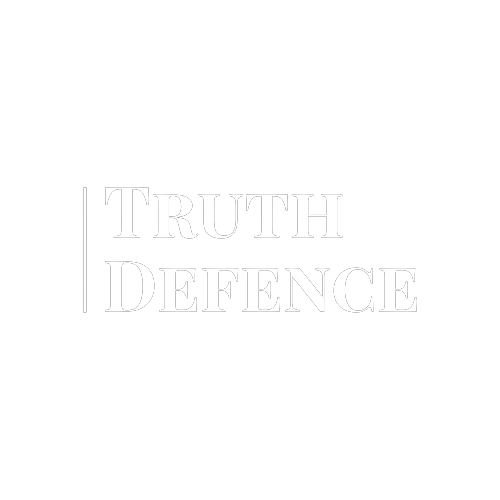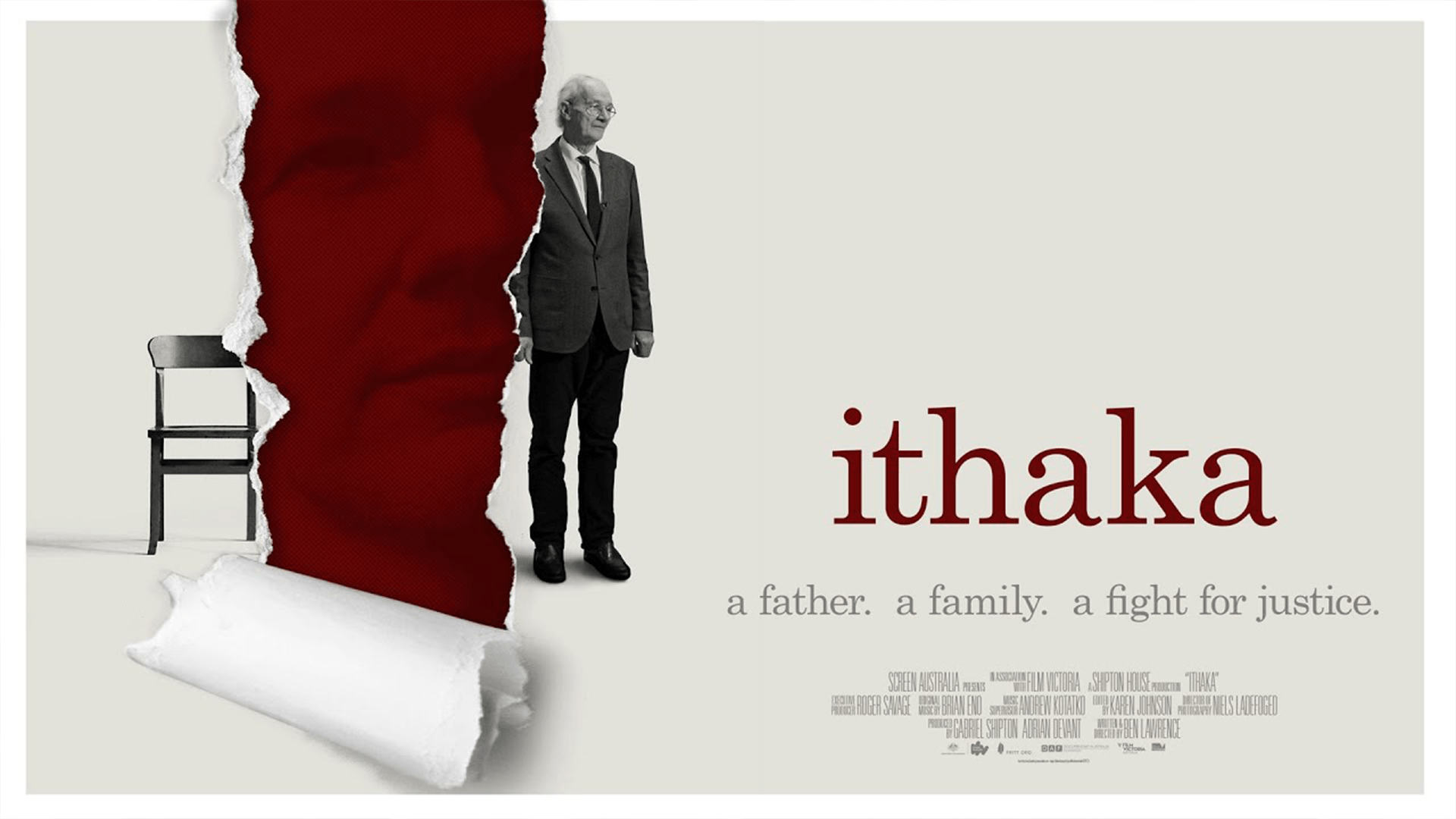Ithaka, the documentary focusing on the plight of WikiLeaks founder Julian Assange and that of his family, was broadcast across the UK for the first time on Sunday, 21 May.
ITV, the UK’s largest commercial television channel, featured the film Sunday evening and continues to offer it via its online streaming platform ITVX.
Ithaka offers an intimate view into Julian’s life and family, including his previously estranged biological father John Shipton, as they take on the herculean task of resisting prosecution and persecution by the world’s most powerful state.
This is the second time the documentary, directed by Australian filmmaker Ben Lawrence and produced by Julian’s brother Gabriel Shipton and his brother-in-law Adrian Devant, has been broadcast by a major television network. The first time being last year via Australia’s state-funded channel ABC.
It has been screened in cinemas and universities across the UK and US — sometimes twice a day — with members of Julian’s family answering questions from the audience after every viewing.
Ithaka is a moving story about resistance and resilience in the face of overwhelming odds and the ability to find strength and hope in a seemingly hopeless situation. It impressively balances the personal and the political, with exclusive, never seen before footage, and provides revelations new to even the most assiduous follower of Julian’s case.
Offering a deeply personal perspective from inside Julian’s family, the film owes its title to a poem of the same name written by the Greek-Egyptian poet C. P. Cavafy in the early 1900s. Cavafy’s poem loosely follows the journey to Ithaka by the ancient Greek King Odysseus, following the decades-long war with the Trojans, as described in Homer’s ancient Greek poem “Odyssey”.
Anyone familiar with the epic will know of the trials and tribulations that Odysseus and his compatriots faced over the span of 10 years, as they sailed home from Troy.
“There were times when John [Shipton] and I were on the road, travelling around the US, or wherever it was, that everything seemed too hard, everything was going wrong, we didn’t know what was going to happen the next day”, Gabriel Shipton told an audience last year, in London, following an early screening of the film.
“We would listen to a great reading of that poem by Sean Connery on YouTube. I recommend you listen to that, it’s like some old school inspirational shit for activism. It really helped because it talks about ‘Ithaka’, which is sort of your goal, or whatever it is within your activism,… to keep that high.
But it’s not about just getting there. It’s about everything you learn along the way, the people you meet, the places you go. And I think that’s very important when you are fighting for something that’s greater than yourself.”
Like Odysseus, Assange is in the midst of his own epic journey.
From full spectrum state surveillance of personal, medical and legal conversations to fabricated stories leaked to the press to assassinate his character to literal CIA plots to kidnap or assassinate him, Assange — and by extension his family, friends, lawyers and colleagues — have been subjected to a full course of dirty tricks and outright criminal actions.
Viewers are subjected to a yoyoing of emotions, from frustration, hope, elation, comedy, despair and back to hope. More than once, the film’s subjects seemingly move one step closer to resolving the case in Julian’s favour, only to find themselves moving two steps back.
Ithaka reveals regular phone calls between Stella and Julian as the latter was imprisoned in Belmarsh and they discuss everything from legal strategy to which books should be read to their young children (they now have two). It also reveals how the couple initially decided not to have children and the moment of optimism that caused them to change their minds.
The documentary illustrates the truly absurd nature of trying to prepare one’s own legal case, involving hundreds of pages, when one can’t see them or make notes, and the documents must be read over the phone by his then-fiancé.
The viewer also can’t help but be moved by the tireless campaign of Julian’s father, a soft-spoken man in his 70s, as he splits his time between Australia, where his young daughter lives, and Europe, the UK and the US, as he and Gabriel travel nonstop to gather support and spread the message about the seriousness of this case.
Later in the film we discover a fascinating and previously unknown revelation behind the failed attempt to get Julian pardoned by US president Donald Trump during his final days in office.
Mostly filmed in high quality 4K, including from footage taken by director of photography Niels Ladefoged, the ambience is skillfully maintained by a subtle but impactful original score by British musician Brian Eno.
Although on the longer end (Ithaka is just 9 minutes shy of two hours), it is difficult to imagine how one could successfully cover a five-year time period in a shorter film.
The success of lobbying and campaigning by John Shipton, Stella Assange, Gabriel Shipton and others, can be seen with the ever growing coalition of politicians, jurists, scholars, media and press freedom organisations and activists around the world. It can also be seen by the fact that more and more Australian, UK and US politicians, across the political spectrum, are openly calling for the US government to drop the charges against Assange.
Most recently, Stella Assange told the Australian press that she is “hopeful” that there are positive developments in her husband’s case. The US Ambassador to Australia met with the Parliamentary Friends of Julian Assange and for the first time, “that shows that the US is listening and aware of the opinion of the Australian people and its representatives.” “At the same time,” Stella added, “Julian has received a visit [in Belmarsh prison] from the High Commissioner of Australia and,” she interprets that as reflecting, “a significant change in the Australian government’s view of the importance of this case.”
I have seen a number of documentaries about Julian’s plight, that of his family and the threat his prosecution represents to the future of media freedom worldwide.
Everyone of them has provides useful insights into different aspects of the case.
Yet, Ithaka offers an intimate full-length portrayal that viewers can’t get from other films on this subject. It has much to offer, regardless of how little or how much one thinks they know about this case.
Mohamed Elmaazi
Mohamed Elmaazi is the new Editor-in-Chief of Truth Defence. He is a UK-based researcher and journalist who writes on a variety of subjects including geopolitics and legal encroachments upon on civil liberties and human rights. Mohamed has covered all of Julian Assange's extradition hearings. His work has appeared in numerous outlets including The Dissenter, Consortium News, Jacobin, The Canary, The Grayzone, The Real News Network, the BBC and The Guardian. He also publishes articles via his website TheInterregnum.net. You can follow him on Twitter @MElmaazi.

